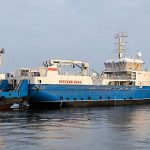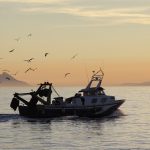The new technique contains a giant blue plastic tanks teem with fish swimming feverishly in circles. These fully contained tanks are response to floating net pens suspended off the coast in open water, a habitat for farming fish. Yonathan Zohar, the father of this technique, said that it is the best option for the fish or the environment. He added that there is no interaction with the environment. There is no pollution.
Zohar is director of the Center for Marine Biology at the University of Maryland Biotechnology Institute in Baltimore. His new technology has tanks that rely on recirculating water, which is cleaned using microbes. A column of pasta like pieces of plastic inoculated with microbes churn in water next to the tanks. He informed that this keeps the water free of waste, which is one of the concerns around using floating net pens in open water.
According to Zohar these pens, which act as a cage for farmed fish, generate loads of nutrient waste from the fish, and fish are exposed to toxic contaminants and poor conditions. Bill Goldborough, director of the fisheries program at the Chesapeake Bay Foundation, is of a view that uneaten food and treatments added to the fish food can accumulate, causing dissolved oxygen, which can be harmful for the water.
Goldborough told that it concentrates and accumulates the waste material, and that can cause water quality problems. Open water systems farther off shore are less of a concern, because the water around the cages dilutes the waste, said David Secor, a scientist at the University of Maryland Center for Environmental Science who has studied bluefin tuna.








